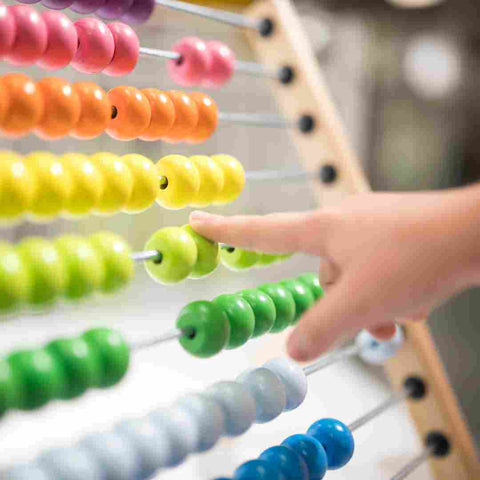Welcome to the final part of our ‘Beginning Keto’ series! We are really excited that you have decided to start your keto journey and want to help you as much as possible so that you can enjoy success rather than stress as you change your eating habits and lifestyle.
Haven't read the other parts of our series? Head on over and read our recommended Low-Carb Food Swaps, Easy Keto Meal ideas, and all about Counting Macros!
One of the things we get asked by new keto’ers is how we go about measuring ketosis. It may sound like an obvious question, but if you take the time to fully understand how to measure ketosis then you are more likely to see the difference that keto can bring to your life.
What Is Ketosis?
Ketosis is the name of the process where you burn body fat for energy - a state that you will be aiming to achieve as soon as possible after starting the keto diet plan.
Ketosis is achieved by limiting the amount of net carbs you consume daily. Having difficulty counting carbs on the keto diet? Read our blog post that explains simply how to count carbs.
When you measure ketosis you should be aiming for a level of 1.5 to 3.0 mmol/l. The longer you are able to remain in this level bracket, the more fat gets burned and the better your weight loss mission will go.
How Can I Measure Ketosis?
There are various ways to measure ketosis and it’s wise to choose the way that works best for you. However, it is wise to remember that each method does come with positives and negatives - we’ve listed the most common ways below so that you can make an informed choice:
Urine Strips
Cheap and quick to use, urine ketone strips will measure the ketones present in your urine and provide you with an idea of the impact of the last few hours in terms of your ketone levels.
They are good if you are looking for a quick and rough idea of your ketosis but they are not the most accurate product on the market. This is because measuring ketones in your urine is not as accurate as measuring them in your blood or your breath. Drinking plenty of fluids dilutes your urine, reducing the concentration of ketones in your urine. This means it is easy to get false positives or false negatives.
If you opt for this method, it is best to make sure you are carefully following instructions and maybe even try a few test strips to eliminate any possibility of incorrect results!
Breathalyzer
If you want a solution that is as equally accurate as urine strips, then you may be interested in trying a breathalyser. Whilst a breathalyzer measures the acetone in your breath, rather than measuring the ketones in your body, it is the least invasive method of the three options. Many variables can cause results to fluctuate so be sure to follow instructions when using this method.
If you are keen to test your ketone levels with a fast and accurate method, then this may be the best option for you. However, a breathalyzer does end up being more expensive than a keto blood glucose meter (read below!). You might find a breathalyzer out of your budget, in which case it may be best to stick to the cheapest option - urine strips.
Keto Blood Glucose Meter
To get the most accurate results it is worth considering a keto blood glucose meter. The initial outlay can be expensive but they tell your ketone levels and you can use it again and again, only needing to pay for new test strips and batteries.
These monitors work to get a pinprick of blood that you can then place on the strips and insert for analysis. It’s a quick and easy process that leaves you with the ketone knowledge you need. Once you are in ketosis you don’t have to check every day unless you want to know how certain foods affect you etc.
When Should I Measure Ketones?
When you have decided how you are going to measure your ketone levels it is important to know when to complete each test. For example, if you want to get a better insight into your state of ketosis each day then it is wise to test at the same time every day to get the most accurate results.
If you are keen to find out the impact of exercise or meal choices on your ketosis then it is worth testing before and after to see the change in the results you get, giving you an accurate idea of what the impact has been.
It’s important to note that ketones vary at different times of the day because of the varied intake of carbs and proteins from meal to meal. This is different for everyone as some people have low ketone levels in the morning that increase gradually throughout the day, whilst others have high levels from the start of the day which reduce after each meal. In turn, you will need to be aware of this when it comes to analysing your results.
Other Signs That You May Be In Ketosis
It’s important to note that there is no requirement for you to measure your ketone levels if you do not want to and many successful keto’ers choose not to. If you choose not to measure your ketones then you can also look out for any of these signs that give you an idea that you are in ketosis:
Keto breath - this is a common effect of being in ketosis and can often feel like your breath has a fruity smell combined with acetone. This is due to raised levels of acetone leaving your body due to ketosis.
Weight loss - sounds simple but if you are in ketosis then you will start seeing the numbers on the scale get lower and lower. It’s the perfect feedback that we are all aiming to see.
Reduced hunger - this is another common sign of ketosis and there is a thought that it happens because you are naturally increasing your protein intake so feel fuller for longer.
Initial Fatigue - this is a side effect that is most common with those new to the keto diet and happens when you reduce your carb intake. Your body just needs to get used to the new fuel you are giving it and will bounce back in no time! When it does and you finally become fat fueled you will have more energy than you are used to.
Digestive problems - this is another common side effect for people new to keto and happens because the body is not used to the new foods that you are introducing. The best way to deal with this is to work hard to eat lots of low-carb vegetables that will keep your fibre levels right. Did we mention that many of our treats are high in fibre or sources of fibre?
Key Takeaways
Whilst measuring ketosis is not a must, it can be a good method of reassuring to yourself that you’re on the right track! It’s completely up to you whether you’d like to wait it out for natural signs of ketosis or go straight into getting measured.
Struggling to stick to the keto diet? Here at NGB we take pride in creating some of the most delicious, keto-friendly products on the market, get yours ordered today and let us help you navigate the keto lifestyle with ease.
Have you had any experience with measuring ketosis? Or maybe you have some questions about it all? Feel free to comment down below and let’s get chatting!




Comments (0)
There are no comments for this article. Be the first one to leave a message!